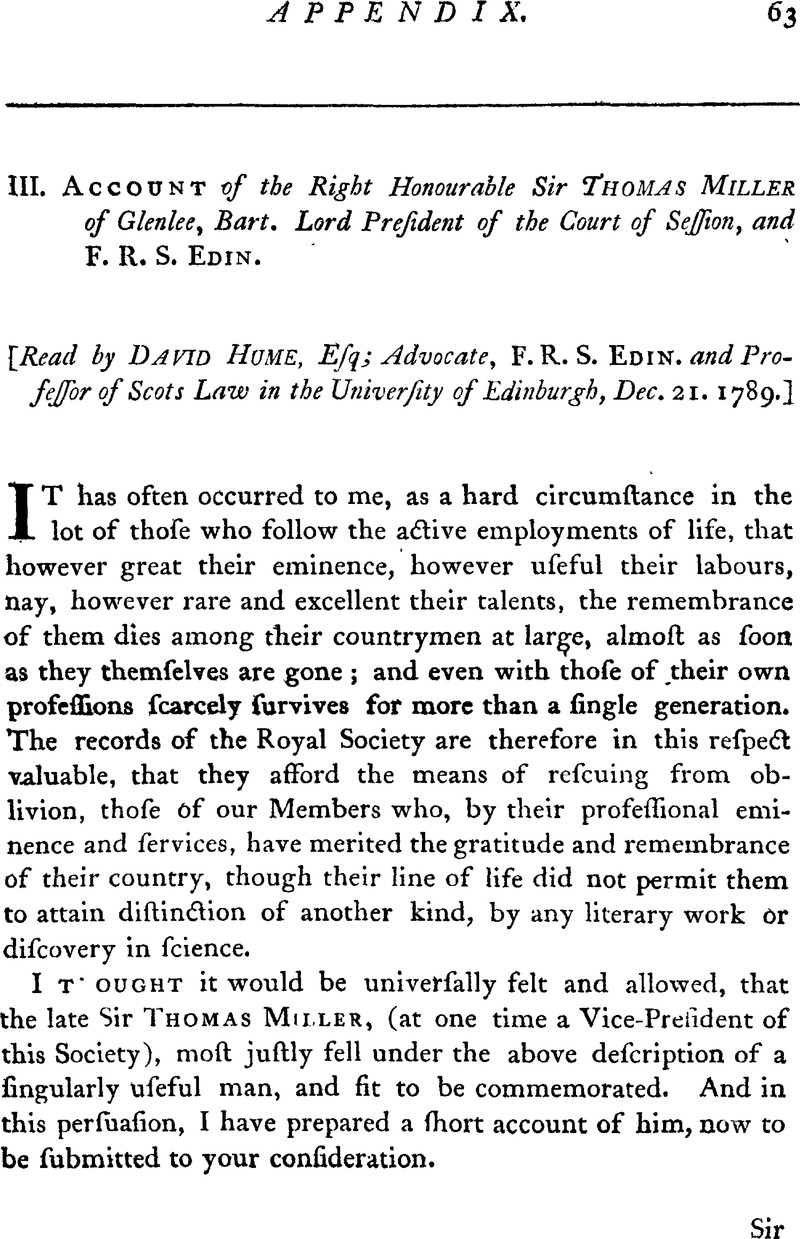No CrossRef data available.
Article contents
III. Account of the Right Honourable Sir Thomas Miller of Glenlee, Bart. Lord President of the Court of Session, and F. R. S. Edin.
Published online by Cambridge University Press: 17 January 2013
Abstract

- Type
- Appendix
- Information
- Earth and Environmental Science Transactions of The Royal Society of Edinburgh , Volume 2 , Issue 1 , 1790 , pp. 63 - 75
- Copyright
- Copyright © Royal Society of Edinburgh 1790
References
page 65 note * His usual hour of going to bed at this period was four of the morning.
page 74 note * Here we must observe, that however remarkable this gentleness and disposition to oblige, they were yet always confined to their proper sphere, and in no instance suffered to interfere with what he esteemed his duty. This appeared, among other examples that might be given, in his spirited behaviour as Lord Advocate, on occasion of a question that arose touching the pre-eminence of his office. The late Mr Charles Yorks had been honoured with a patent of precedence over his brethren at the Bar, with exception only of the Attorney-General; and happening to be engaged as Counsel in the House of Lords, on the same side with Mr Miller, he, under this privilege, claimed right to be heard before him. Mr Miller, though in habits of intimacy with Mr Yorke, and personally very indifferent about any such distinction, felt himself here in duty called upon to refill his friend's pretensions; and accordingly maintained (nor could be prevailed on to recede from it) that he, as his Majesty's Advocate, was Attorney-General for Scotland, and within the exception of the patent. The point was in the end referred to the opinion of Lord Mansfield, which was given in favour of Mr Milier.


